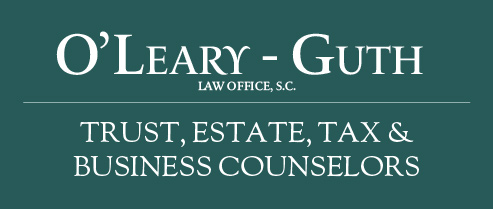What Type of Income Tax Returns are Filed When Someone Dies?
Posted: May 3, 2017
Personal Income Tax Returns
Arrangements should be made for filing a decedent’s personal income tax return (IRS Form 1040) for the year of death. In general, the final individual income tax return of a decedent is prepared and filed in the same manner as when they were alive. All income up to the date of death must be reported and all credits and deductions to which the decedent is entitled may be claimed. Include the taxpayer’s date of death on page 1 of the Form 1040 for the year of death. If the decedent has not already done so, you may also have to file individual income tax returns for years preceding the year of death (for example, if a decedent dies early in the year).
Estate Income Tax Returns
The estate of a deceased person is a taxable entity separate from the decedent. Annual income tax returns should be filed for an estate so long as it exists. It generally continues to exist until the final distribution of the assets of the estate is made to the heirs and other beneficiaries. The income earned from the property of the estate during the period of administration or settlement must be accounted for and reported by the estate.
Trust Income Tax Returns
Annual income tax returns should be filed for all non-grantor trusts (and sometimes for irrevocable grantor trusts). See Instructions for IRS Form 1041.
Grantor Trusts
A grantor trust is not recognized as a separate taxable entity for income tax purposes because the grantor or other substantial owners have not relinquished complete dominion and control over the trust, such as when a grantor retains the right to amend or revoke the trust agreement. A grantor trust becomes a non-grantor trust upon the death of the grantor.
Non-Grantor Trusts
Non-grantor trusts are taxed as either simple trusts or complex trusts.
Simple Trust. A trust may qualify as a simple trust if:
The trust instrument requires that all income must be distributed currently;
The trust instrument doesn't provide that any amounts are to be paid, permanently set aside, or used for charitable purposes; and
The trust doesn't distribute amounts allocated to the corpus of the trust.
Complex Trust. A complex trust is any trust that doesn't qualify as a simple trust as explained above.
Schedule an appointment with us today.
Meet with a knowledgeable attorney who specializes in your area of law.
1251 W. Glen Oaks Lane, Mequon, WI 53092
F: (262) 238-6999
